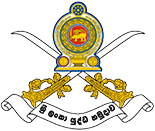 THERE SEEMS to be less civilians getting out during the [New Year] pause than before. So it is clear that LTTE did not allow those who wished to leave even if they wished to leave the area during this pause to do so, they seemed to be actively prevented from doing so, perhaps more actively prevented from doing so during this pause, so that is a matter for great regret,” said UN Under Secretary General for Humanitarian Affairs Sir John Holmes, at a briefing on the situation in Sri Lanka at the UN, New York, April 15. “We believe they should be allowing people, encouraging people to leave the no fire zone.
THERE SEEMS to be less civilians getting out during the [New Year] pause than before. So it is clear that LTTE did not allow those who wished to leave even if they wished to leave the area during this pause to do so, they seemed to be actively prevented from doing so, perhaps more actively prevented from doing so during this pause, so that is a matter for great regret,” said UN Under Secretary General for Humanitarian Affairs Sir John Holmes, at a briefing on the situation in Sri Lanka at the UN, New York, April 15. “We believe they should be allowing people, encouraging people to leave the no fire zone.
Civilians should not be used as pawns or human shields in this way. So we call on the LTTE very strongly to change their attitude to this and to allow those who wish to leave, which we believe is the vast majority at least, and to do so as soon as possible to get them out of harms way,” he added.
Responding to a question by the media on what evidence do UN has that these people actually would like to get out, Sir John Holmes said: “The UN agencies, International committee of the Red Cross and our staff and people, when they came out of the LTTE hold they made it absolutely clear that people were being held against their will. They had to flee and if they try to leave they are being fired upon.
When they try to flee, huge pressure is put on them against their leaving like forced recruitment of the civilians including children against their will, to fight or work for the LTTE. There may be some immediate family members who may stay but overwhelming majority would want to get out at least for safety reasons irrespective of political reasons.”
Answering question whether the UN is calling for a ceasefire, he said: “Regarding a ceasefire, what we have done is to call consistently for a peaceful and orderly end to hostilities and to that end to call for a humanitarian pause which we hope could be transformed into something lasting. It is pretty clear frankly however that a ceasefire is not something that is available in the present circumstances. We are trying to do something realistic in the present circumstances.” Asked how many people have been killed and injured, Sir John Holmes said: “You cannot give verifiable figures. Dozens may be killed per day. It goes up some days, it goes down other days.
There were reports 50-60 killed or injured and other days it is less but we cannot verify.”
With regard to medical and halt conditions in the NFZ he said there may be water borne diseases. However, there is no danger epidemic at the moment. His full response was: “There are some rudimentary medical facilities in the zone. There are some doctors, some medical supplies have been delivered, we need to get more urgently. Red Cross ship arrives every two or three days taking supplies, the patients are brought to better facilities for treatment in Trincomalee and Vavuniya. Poor water quality, poor nutrition may give rise to disease etc.
Because there is no supply of antibiotics, sometimes amputations have to be carried out. There may be water borne diseases. However, there is no danger epidemic at the moment.” (Courtesy: Daily News)

